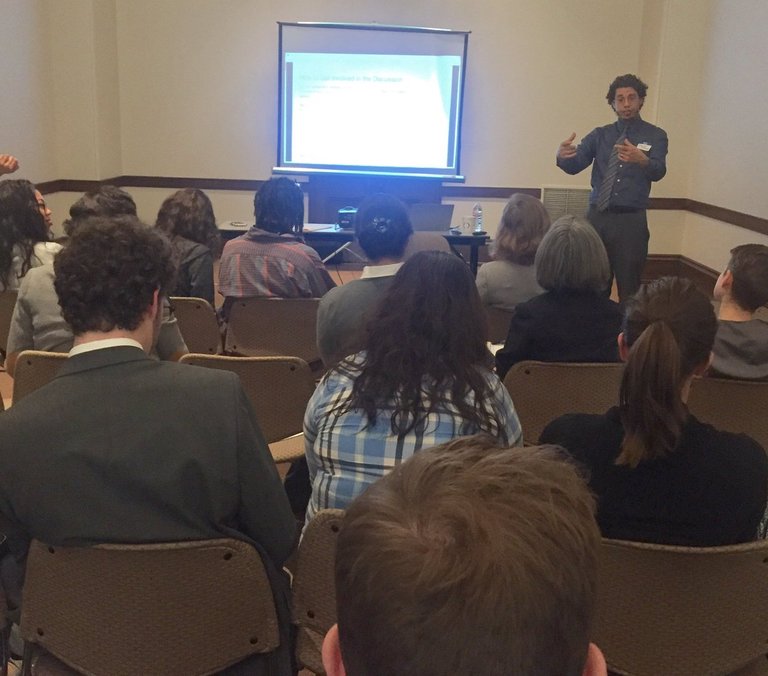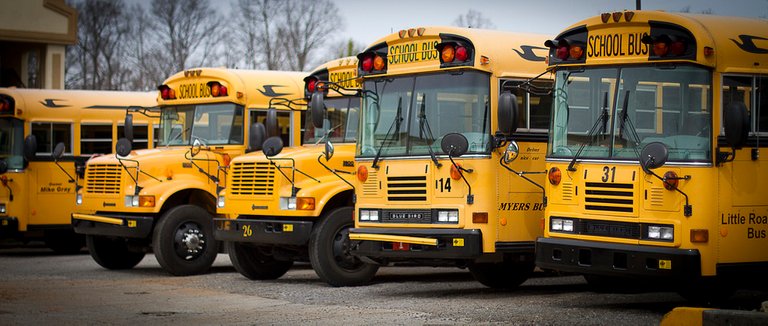Part 1 and Part 2) and thisThis post is part of the Philadelphia History Initiative (@phillyhistory). This week our class is considering where we would invest in the cultural sector, what problems we would tackle, and what impact would we hope to have? Other posts in this series include a two-parter by @engledd and @dduquette ( from @yingchen.
I am the son of an artist and I have made the humanities my career; it isn't hard to convince me that funding the cultural sector is important. But as I consider where a small grant can have an impact, it feels like there are so many other broken parts of our world. A museum might have critical needs, but how can they compare to the fact that public school teachers have to buy supplies for their students or vast racial iniquity in this country (no link handily sums this up).
But no small grant is going to fix those big ol' structural problems either, and our brief is to work within the world of the humanities.
What if we could address (in a small way!) educational funding shortfalls and racial disparity in our cultural sector? What about school buses?
I've gotten ahead of myself; let me introduce you to Ismael Jimenez.

Photo by Lynne Calamia via Twitter
Ismael teaches African-American History at Kensington Creative and Performing Arts High School and you can learn more about his teaching and social justice work here.
I was introduced to Jimenez at last year's Public History Community Forum (PubComm). He presented one of the sessions and later led a panel with two of his students and Monica Montgomery (of Museum Hue).

Photo by Janneken Smucker via Twitter. Smucker was "Struck by juxtaposition of young women discussing disconnect with history while sitting beneath portraits of TJ, BF, and GW."
There were a couple big lessons from the panel:
- Jimenez talked about how tough it is for teachers to arrange visits to museums. Bus costs alone are an impediment. Connecting classrooms and institutions takes effort from museums as well as teachers and parents.
- The (super poised!) teenagers talked about how formative museum visits could be if they were engaging and guides/interpreters/docents shared their own opinions and passion.
So we know that museum visits can be an asset to teachers like Jimenez who are trying to give their students historical context for our present times and get them excited about history. We also know that there are obstacles to those visits, and seemingly ones that a little bit of capital could solve. This is where those buses come in.

Photo by dhendrix73, used under Creative Commons License CC BY-ND 2.0
Instead of investing in only one of dozens of cultural institutions, what if we put some money toward lowering the threshholds for teachers to use those institutions as a classroom? I know Eastern State Penitentiary offers a bus scholarship, might that be something we could offer more broadly?
Does this seem like a workable idea? Are there better ways to connect classrooms and cultural institutions? Let me know what you think!
Note: PubComm 2018 has been announced for April 5. It is being planned by @gvgktang and @jfeagan among others. It's going to be great! If you're in the Philadelphia area and interested in public history, check it out!
Center for Public History and MLA Program, is exploring history and empowering education. Click here to learn more.100% of the SBD rewards from this #explore1918 post will support the Philadelphia History Initiative @phillyhistory. This crypto-experiment conducted by graduate courses at Temple University's
What about a grant that buys and pays operating costs for 3-4 buses which take classes to various cultural institutions for free? I imagine there's lots of liability issues that would have to be dealt with, but...
That might be more cost-effective than funding an existing bus company to ferry students. On the other hand, maybe not: it would take some researching.
Good point. So you might ask the creative teacher who's already researched the best and least expensive mode of transportation for a class to a historic site.
When I taught in Brooklyn, we were lucky enough to be walking distance to the Subway, which the MTA let classes ride for free, if organized in advance. Unfortunately, many of the subways in Brooklyn and the other boroughs are not accessible and not all students were able to participate.
I don't think it is the responsibility of the teacher or the museum to facilitate student travel to museums. Instead, society has a responsibility to offer education to all people and education consists of experiences like museum visits. Is it unfair to expect cultural institutions to foot the bill for education when such visits benefit all people in the society by creating a better world?
This is a great idea, and I appreciate the PubComm plug!
Agreed! Teachers have to jump through so many hoops to book field trips and buses are extremely expensive -- this is compounded when teachers only have the leeway to have a field trip on a single day, and thus must bring more students, and thus must order more buses...
NMAJH also has a bus (and admission) scholarship for all Title I schools and other groups demonstrating financial need. I don't think every single museum does this, of course, but in my experience it's a common enough opportunity, at least among larger museums.
Fortunately, at least for us, subvention funds is the single easiest category to fundraise for, to the point where this fiscal year we actually have more funds than we'll likely need (but that we can't use for other purposes). Donors love helping students!
I think it would be interesting to explore the other ways that museums and other historical institutions can support teachers along this vein. What if, for example, a museum were to help facilitate the sponsorship of a class or grade, helping donors to buy textbooks, pencils, and other supplies for teachers? I'm not sure how this would work, especially if there were no other connection to the museum, and I can definitely see development staff worrying about "losing" the donor to the school... But definitely something to explore further! Or, especially going off of @engledd's idea, if we pooled all those scholarships to create like a centralized bus/admission scholarship in each geographic area, which would also help out smaller museums that don't have these funds or resources...
Good idea. It'll be interesting to hear what others think. And maybe consider this twist: awarding a bus grant to the recipient org that agrees to match it one-to-one with additional $$. (Heck, or even 2:1!) Nothing like leverage to align funding and extend the impact of a good idea.
Congratulations @tmaust! You have completed some achievement on Steemit and have been rewarded with new badge(s) :
Click on any badge to view your own Board of Honor on SteemitBoard.
For more information about SteemitBoard, click here
If you no longer want to receive notifications, reply to this comment with the word
STOPDisclaimer: I am just a bot trying to be helpful.